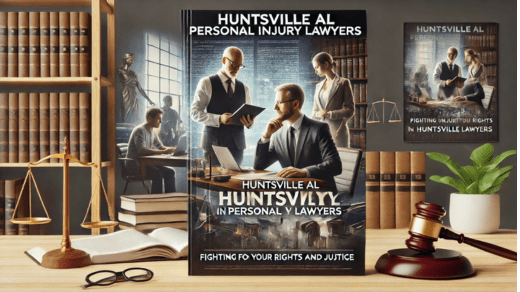Legal jargon can make personal injury cases feel more complicated than they are. Often, clients come to personal injury lawyers with misconceptions about common terms, which can lead to confusion or unrealistic expectations. By understanding these misunderstood concepts, you can better navigate your case and communicate effectively with your attorney.
Burden of Proof in Personal Injury Cases
One of the most misunderstood aspects of personal injury cases is the burden of proof. Clients often assume that proving someone else was at fault is a straightforward process, but it’s far more nuanced. The burden of proof lies with the plaintiff—the injured party—and it requires them to demonstrate that the defendant’s actions directly caused their injuries. In legal terms, this means providing evidence that meets the “preponderance of the evidence” standard, which is different from the “beyond a reasonable doubt” standard used in criminal cases.
Personal injury attorneys help clients collect and present evidence, from medical records and eyewitness testimony to accident reconstruction reports. However, clients are often surprised by how detailed and thorough this process needs to be. For instance, simply stating that another driver was speeding may not be enough; proving the exact speed and connecting it to the injury are critical. Understanding this responsibility helps clients appreciate the careful work that personal injury lawyers in Huntsville AL, or any location, do to build a strong case.
Economic Damages Versus Non-economic Damages
Many clients think compensation in personal injury cases only covers medical bills or lost wages. While these fall under economic damages, non-economic damages are another important category that clients often overlook. Economic damages refer to quantifiable losses, such as hospital bills, therapy costs, and future earning potential. On the other hand, non-economic damages compensate for intangible losses, like pain, suffering, and emotional distress.
Explaining non-economic damages can be tricky because there’s no clear formula for assigning a monetary value to someone’s pain or anxiety. Personal injury attorneys advocate for clients by presenting evidence such as journal entries, therapist notes, or testimonies from loved ones to illustrate the broader impact of an injury. This helps clients understand why two similar cases might have vastly different compensation amounts, depending on the extent of the emotional or psychological toll.
Legal Definition of Duty of Care
The term “duty of care” often confuses clients, though it’s a cornerstone of personal injury law. Duty of care refers to the legal obligation individuals or entities have to act in a way that avoids causing harm to others. For example, drivers have a duty of care to follow traffic laws and avoid reckless behavior on the road. When this duty is breached, and someone is injured as a result, the injured party can pursue compensation.
Clients sometimes assume that proving a breach of duty of care is straightforward, but it requires more than pointing out negligence. Personal injury lawyers near you must demonstrate that the defendant’s actions fell below the standard of care expected in that situation. For instance, slipping on a wet floor in a grocery store doesn’t automatically mean negligence; the lawyer needs to prove that the store failed to take reasonable steps to prevent the hazard, like posting a warning sign or cleaning the spill promptly.
Settlement Agreements and Their Binding Nature
Many people view settlement agreements as a simple, one-and-done resolution to their cases, but they carry significant weight. A settlement agreement is a binding contract between the injured party and the defendant or their insurance company. Once signed, it typically prevents the plaintiff from pursuing additional compensation for the same incident, regardless of unforeseen expenses or complications that arise later.
Personal injury attorneys often emphasize the importance of fully understanding the terms of a settlement before agreeing to it. Clients might feel tempted to accept the first offer, especially when facing mounting bills, but this can leave money on the table. Lawyers evaluate the long-term impact of injuries to ensure that the settlement covers not just immediate costs but also future expenses. Understanding the finality of these agreements helps clients make more informed decisions.
Insurance Policy Limits Affecting Claims
One of the biggest surprises for clients is learning how insurance policy limits affect their potential compensation. Every insurance policy comes with a maximum payout amount, which caps how much an injured party can recover from that policy. For example, even if your damages exceed $100,000, you won’t receive more than the policy limit if the defendant’s insurance only covers $50,000.
This is where Huntsville AL personal injury attorneys often dig deeper, exploring options like pursuing compensation from multiple parties or tapping into the plaintiff’s own underinsured motorist coverage. Understanding these limits helps clients set realistic expectations for their recovery and appreciate the strategic approach their lawyer takes to maximize compensation.
Third-party Liability in Multi-party Accidents
Multi-party accidents, such as pileups on highways or construction site mishaps, often involve third-party liability. Clients may assume that only the directly involved parties are accountable, but personal injury lawyers frequently identify other responsible entities, like contractors, manufacturers, or employers. For instance, if faulty equipment contributed to an injury, the equipment manufacturer might share liability.
Determining third-party liability requires extensive investigation, including reviewing contracts, maintenance logs, and workplace safety protocols. Clients often find it eye-opening to see how many layers of responsibility exist in these complex cases. Personal injury lawyers in Huntsville AL take the lead in untangling these connections, ensuring that all liable parties are held accountable to secure the compensation their clients deserve.
















+ There are no comments
Add yours